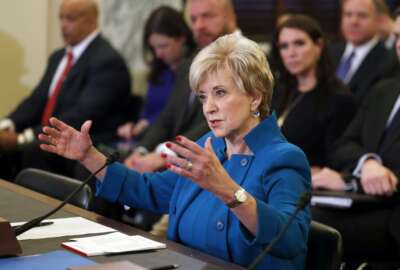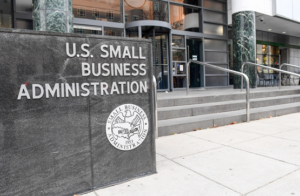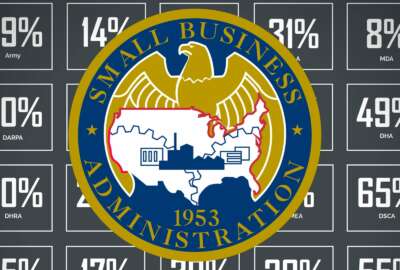
SBA says it’s back in business after shutdown stall
The 35-day partial government shutdown presented different challenges for federal agencies but the Small Business Administration is back to operating at...
A 35-day partial government shutdown presented different challenges for federal agencies but at least one seems to be back in business. The Small Business Administration (SBA) is operating at pre-shutdown levels despite losing 20 full lending days during the appropriations laps in December and January.
“As a result of process improvements put in place by Administrator Linda McMahon, our ability to get back to business was greatly enhanced,” William Manger, associate administrator of SBA’s Office of Capital Access, told the House Small Business Subcommittee on Investigations, Oversight and Regulations on Tuesday. “For example, by the end of 2018 we had cut in half the time it takes to process and approve loan applications. These developments played a key role in dealing with the volume of applications once our systems were again open.”
 As of Friday, SBA had approved more than 7,900 loans and a total $3.7 billion since reopening Jan. 28, Manger said.
As of Friday, SBA had approved more than 7,900 loans and a total $3.7 billion since reopening Jan. 28, Manger said.
Exempt operations during the shutdown included administrative closings of previously approved 504 loans, limited lender oversight and risk management of the agency’s loan portfolio, microloans through intermediaries who had already received funding, disaster loan processing and the online lender match platform.
Manger told Subcommittee Chairwoman Judy Chu (D-Calif.) that when the appropriations lapse hit, a couple hundred loan applications had come through on a non-delegated basis, as opposed to the nearly 80 percent of 7(a) loan applications which come through on a delegated basis. That means they come through SBA’s electronic system and are funded in real time.
The couple hundred non-delegated applications could not be reviewed during the shutdown. However, some exempt employees came in to process 504 program loans which had been approved and obligated prior to the funding lapse. These were handled in order of first in, first out, Manger said.
The agency shut off its central service system so that no loans were joining the queue during the shutdown. Therefore, he said, there was no backlog of loan applications when SBA reopened. Time-sensitive loan applications were prioritized and the agency brought on extra resources to work through the volume.
However, SBA has seen an uptick in loan applications that has remained high since the shutdown. Chu asked Manger if it was possible to insulate lending programs from future appropriations lapses, but he said the Antideficiency Act prohibits SBA from putting their normal guarantees on loans.
He also provided an update from a Feb. 6 hearing of the House Committee on Small Business, when an Alexandria, Virginia-based brewer said he was struggling to secure an SBA loan to expand his business due to the shutdown. Since then, Manger said, SBA has since reached out to and approved a loan modification for that company.
Related Stories
In addition, the Small Business 7(a) Lending Oversight Reform Act of 2018’s June 21 deadline is approaching and Manger said he expected SBA to meet it. Signed into law last year, the legislation modifies the Office of Credit Risk Management’s supervisory duties and the committee’s review of OCRM formal enforcement action recommendations.
OCRM must now supervise 7(a) lenders, lending partners or participants in a program from the Office of Capital Access, small business lending companies and non-federally regulated lenders. When asked by Rep. Ross Spano (R-Fla.) what the greatest challenge was for the 7(a) and microloan programs, Manger said it was making sure SBA’s programs reach Americans in every area, especially rural and historically underutilized business zones.
He also told the subcommittee that SBA seeks to promulgate rules for its express program, which has operated without for two decades. The final rule will likely be promulgated in the summer, after going through public comments and submitted to the Office of Management and Budget for review.
“It was only operating on SOP, and that is not good policy,” he said.
Copyright © 2025 Federal News Network. All rights reserved. This website is not intended for users located within the European Economic Area.
Amelia Brust is a digital editor at Federal News Network.
Follow @abrustWFED





